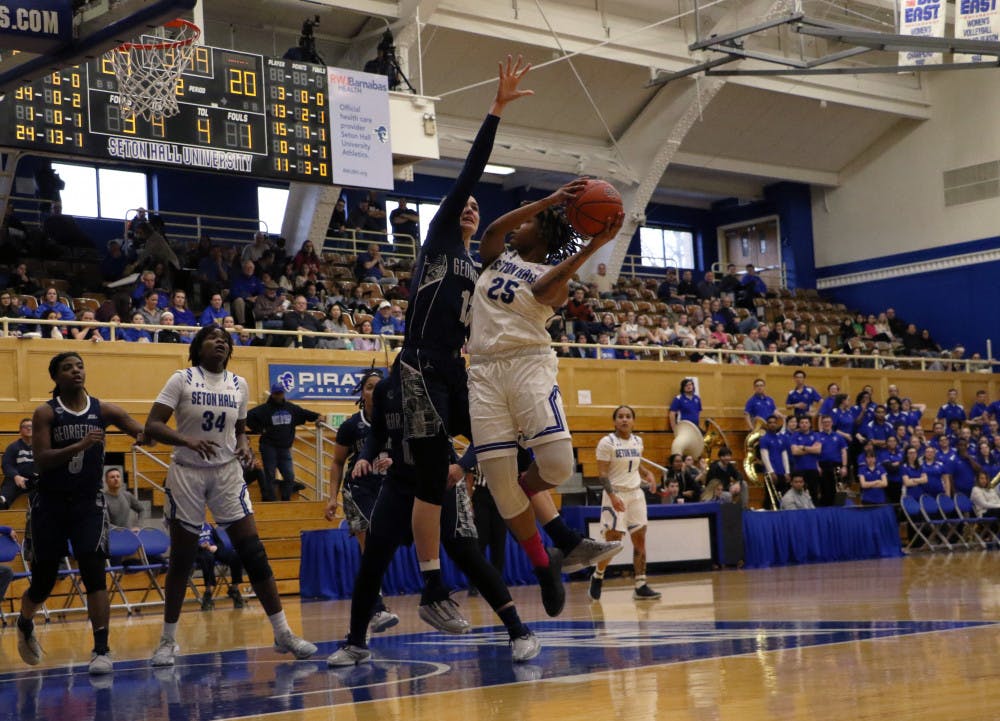Two Seton Hall students are currently in the process of formulating an abstract that, they hope, will allow them to present at the annual conference for the American Assembly of Men in Nursing later this year.
Sophomore Matthew Power and junior Eddie Cuza are focusing on the organization's objective of utilizing strategies to "recruit men into nursing which remove barriers and facilitate male entry into the profession."
The abstract, once completed, will be submitted for blind review by the AAMN. If chosen, the students, both nursing majors, will travel to the University of Kentucky in Lexington in October where they will participate in a panel discussion during the three-day conference.
According to Maureen Byrnes, an instructor in the College of Nursing and the advisor to Power and Cuza, it was Power's leadership qualities that encouraged him to carry out the project.
"Matthew is what I will call an emergent leader," Byrnes, who taught his Intro to Professional Nursing class last semester, said. "By class no. 4 I could see certain qualities in him and knew he was driven. I wouldn't say it was me who got this project going, it was really the seed of his leadership taking root."
Power said he thinks it is important to break what he termed a "Florence Nightingale" stigma that had the general consensus about nursing "stuck in the 1800s."
"It is important to show men, and the community at large, that nursing is no longer, and hasn't been for a while, a mere occupation, but rather, a highly technical, science-driven profession which focuses on caring for the entire individual," he said.
Cuza, the president-elect of the Student Nursing Association, joined the project about three weeks ago.
He agreed it was important to break the female-only stereotype many have of nursing.
"What makes this topic so important to me is the shortage of nurses in general, which is only expected to worsen as America's population ages," he said. "Nursing is definitely not for everyone but when recruiting is limited to one gender the chances of adequate staffing are obviously less."
Typically, students to do not submit presentations for review, with presenters usually being theorists or having Ph. Ds.
"I do not feel intimidated because I have the view that we're all working together toward a common goal. If anything I feel honored to be given the chance to work with some of the highly respected professionals in the field," Cuza said.
Power said he also hoped to make people more aware of the many opportunities that advancement nursing offers to those in the profession.
"There are countless opportunities that stem from attaining your RN, each advancement becoming more lucrative than the last," Power said. "It can be a very lucrative career choice that many men do not decide to make due to the gender stereotype."
Cuza decided to go into nursing after being a Medic in the United States Air Force.
"With so many professional avenues available in nursing it was the most logical next step for my career," he said.
Byrnes credits Seton Hall with encouraging a strong participation of men in nursing.
"Matthew and Eddie can make it look easy but this has all been set in motion because of the support from Dean Hansell," she said. "Without her focus and leadership, this wouldn't be."
According to Byrnes, Seton Hall's Nursing program is about 10 percent male, while, nationally, only 4 to 5 percent of all nurses are male.
"I am very proud and very impressed with Matt and Eddie," Byrnes said. "I think they are doing a great job of breaking down stereotypes and can hopefully represent our University and male nursing students on a national level."
Alyana Alfaro can be reached at alyana.alfaro@student.shu.edu.





